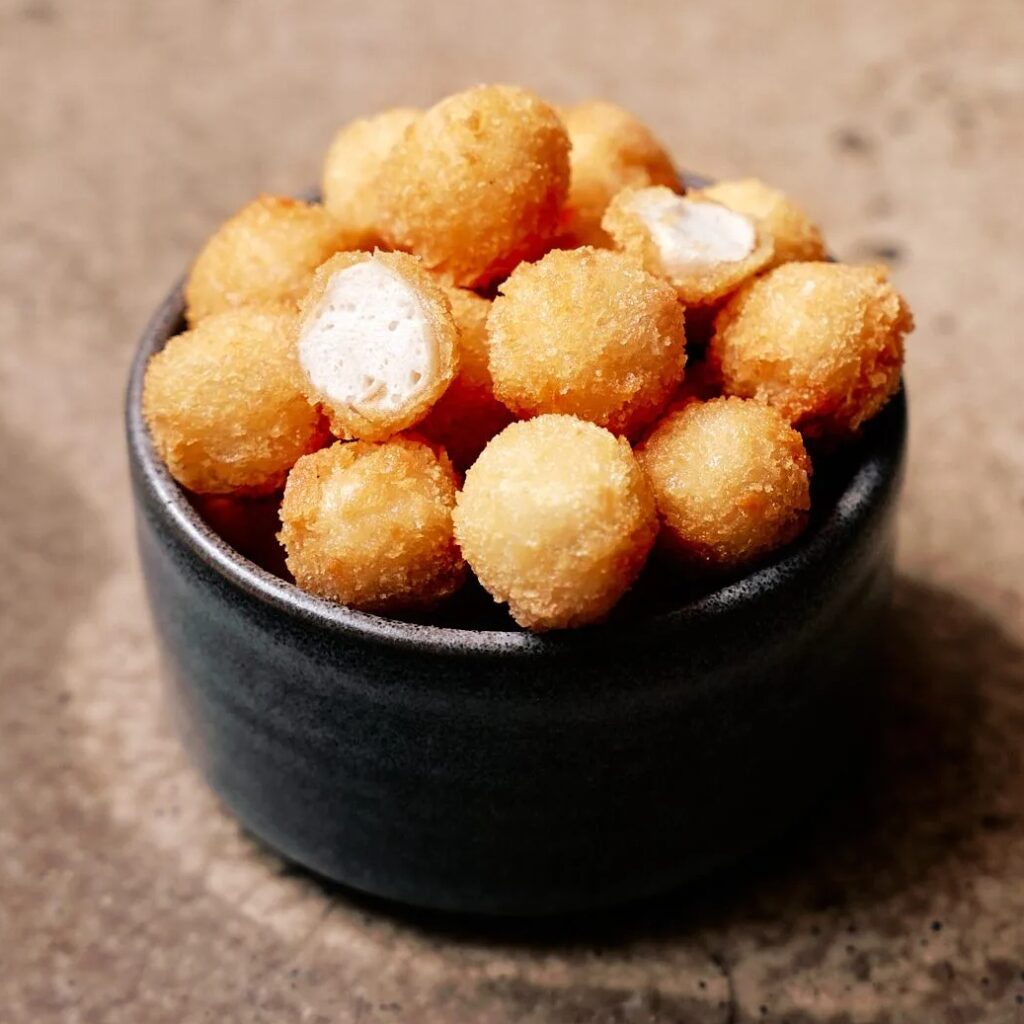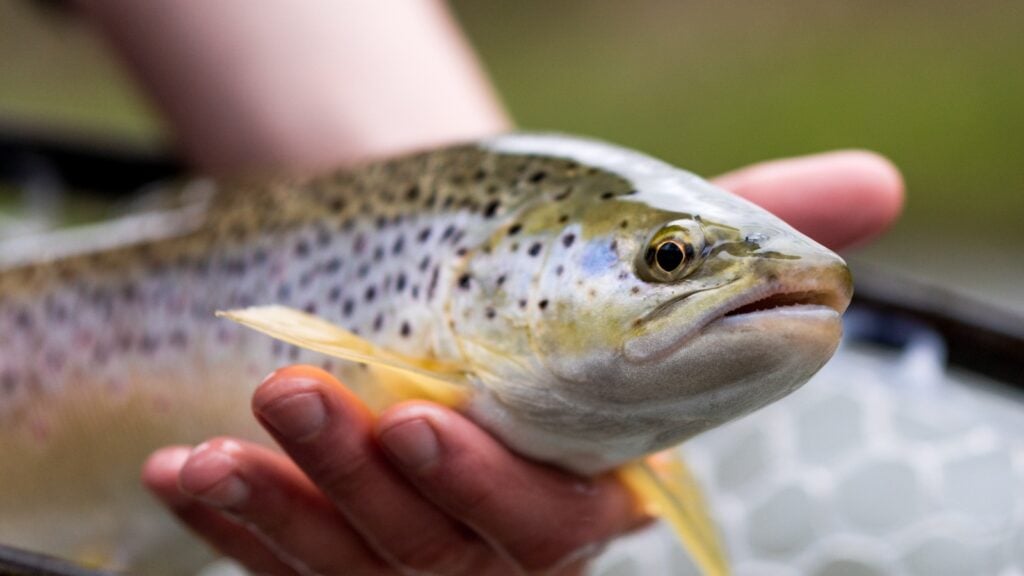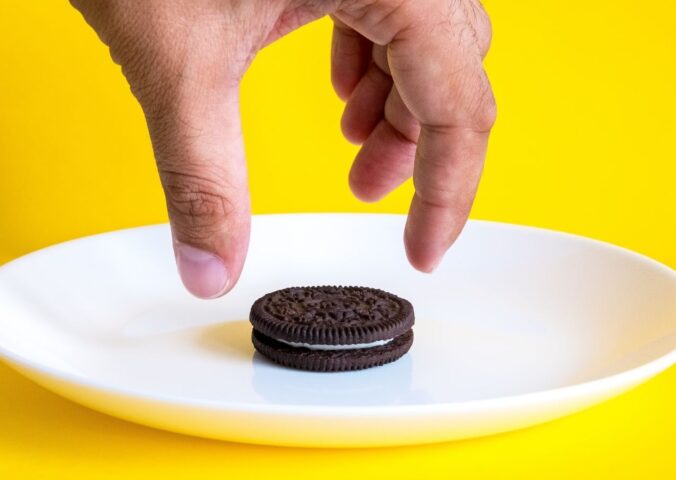Already this year, more than three billion fish and more than 43 billion shellfish have been slaughtered for food in the US. That already feels like an incomprehensible number, but it’s just the tip of the iceberg. Global estimates state that up to 2.7 trillion wild fish are caught and killed every year. For farmed fish, it’s up to 167 billion.
Not only is this cruel (research confirms that fish do suffer and feel pain), but it’s also not sustainable. According to WWF, overfishing, which happens when we fish faster than the population can cope with, is driving a decline in ocean wildlife. A world with fewer fish isn’t just sad, it’s dangerous.
Marine animals help to keep the oceans healthy, filtering toxins from the water. We already know that overfishing leads to toxic algal blooms, for example. Fish are also a vital part of ecosystems: sea lions, narwhals, beluga whales, marsh crocodiles, and emperor penguins are just a few examples of piscivores, aka animals that rely predominantly on fish as a food source.
But a world where the oceans are constantly struggling doesn’t have to be in our future. Recent developments in food science are threatening to change the way we eat for good.
Fish food tech
Based in Germany, food tech company Bluu Seafood has unveiled two products: fish sticks and fish balls. So far, nothing out of the ordinary. But while they look just like your usual Birds Eye-esque creation, they’re far from the same, because Bluu Seafood’s fish was grown inside a lab.
Just like the rest of the cultured meat industry, Bluu Seafood starts by taking cells from a real animal. This happens just once. Next, the fish cells are duplicated and fed nutrients inside a bioreactor, before they are grown in fish-like “scaffolding.” The result is meat that looks and tastes like it’s come from regular fish but without the mass slaughter.

Bluu Seafood isn’t alone.
California-based cultured seafood company BlueNalu was founded back in 2017, and in January of this year, it signed a deal with multinational sushi restaurant operator Food & Life Companies to develop toro, the belly portion of bluefin tuna used in sushi. And in Singapore, Shiok Meats is also focused on seafood. It launched the world’s first cultured lobster meat in 2020.
But, after just two years in operation, Bluu Seafood is the first to present its products in Europe, where regulatory approval for cultured meat is still pending.
“We can demonstrate visible and edible results after less than two years of being operational,” said founder Dr. Sebastian Rakers. “We are now working closely with regulatory authorities to clear the way for market launch and focus on scaling.”
A much-needed solution or a ‘fallacy?’
It sounds like the perfect solution. Especially to the trillions of fish killed every year. But could fish cells grown in a lab really replace the real thing anytime soon? Some are skeptical.
For example, Pat Brown, who founded plant-based meat giant Impossible Foods, believes the entire cultured meat market is not an economically viable solution to the food system’s problems. He told Plant Based News earlier this year he believes the entire industry is a “complete fallacy.”
He added: “That industry has been saying, ‘we’re going to be on the grocery shelves next year for the past 10 years and it is as far away as ever.”
It’s true: the cultured meat industry is still new and has encountered a number of obstacles. It wasn’t until 2013 that the first cultured burger debuted and then, and it cost $330,000 to create. But the price has come down considerably in less than a decade. Now, one cultured meat patty sits at just under $10.
Plus, companies are proving that this technology can scale. Earlier this year, vegan egg brand Eat Just, which also has a cultured meat division, signed an agreement to build the biggest-ever cultured meat bioreactors. The enormous vats will span four stories and will be capable of producing up to 30 million pounds of cultured meat.
Fish made from plants
Brown, perhaps unsurprisingly given his position, backs the plant-based alternative market as the change the food industry needs.
And progress is happening there too. Loma Linda, Future Foods, Quorn, Good Catch, Sophie’s Kitchen, and Gardein all make vegan fish-like products, using only plants. Impossible Foods has also reportedly been working on plant-based fish for a while.
In the next decade, some reports state that the global plant-based seafood market could hit more than $1.3 billion.
But whether we get there through plant-based protein or whether we get through real fish cells, one thing’s for certain: change is urgently needed. The oceans, and everything (and everyone) that lives in them, are depending on it.






